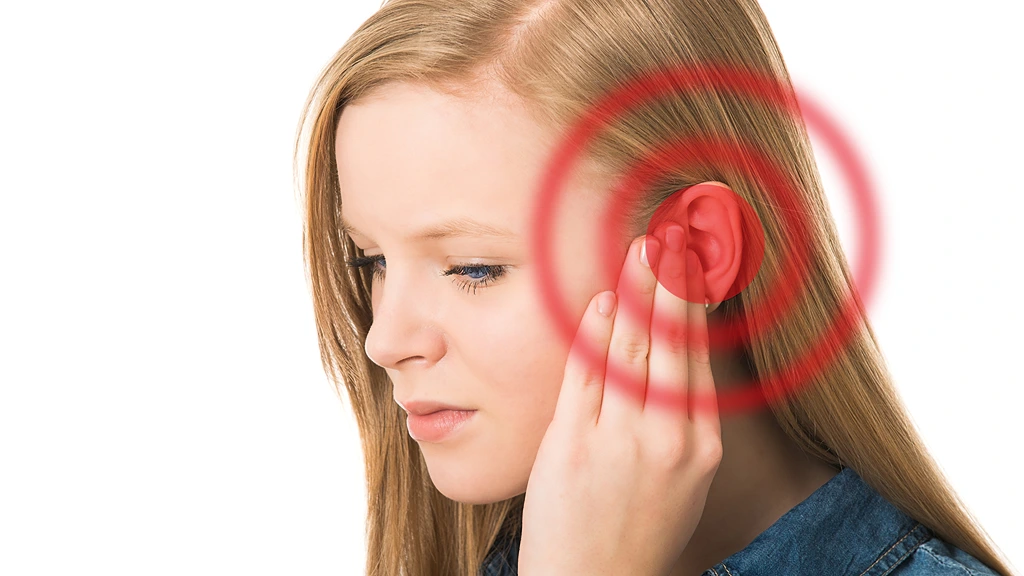Have you ever experienced a ringing, buzzing, rumbling, clicking, whistling, or hissing sound in your ears that lasts momentarily or even lingers for an extended period? This sensation, known as tinnitus, isn’t a disease itself but rather a symptom of an underlying condition. Possible causes include inner ear issues, blood vessel disorders, or even side effects from certain medications.
Since tinnitus often occurs without any external sound source, it is sometimes called a phantom sound. When persistent, it can disrupt daily life and may even impair hearing, which can lead to long-term complications if left unaddressed.
Symptoms of Tinnitus
Tinnitus, or ringing in the ears, can affect individuals of any age, although it’s more common among those over 60. It manifests as the perception of sound without any real external source. Affected individuals may hear these sounds in one or both ears.
Common sounds experienced with tinnitus include:
- Buzzing
- Hissing
- Pulsing
- Rumbling
- Roaring
The intensity of these sounds varies, from soft to loud, and can sometimes be so intrusive that they hinder concentration or mask actual environmental sounds.
Tinnitus can be constant or intermittent, with the sounds typically audible only to the person affected. However, in rare cases, a healthcare provider may also detect them during an examination.
Additionally, some individuals with tinnitus develop heightened sensitivity to certain everyday sounds, such as breathing, yawning, or chewing. This condition is known as misophonia and can further contribute to the discomfort experienced with tinnitus.
Causes of Tinnitus

To be able to overcome ringing in the ears, we must first know the cause.
1. Prolonged Exposure to Loud Noises
Continuous exposure to loud sounds can harm the nerves, membranes, hair cells, and other delicate structures in the inner ear. When these components are damaged and don’t function normally, the vibrations fail to transmit signals to the brain, which can result in tinnitus or ringing in the ears.
2. Ear Canal Blockage
Another cause of tinnitus is a blockage in the ear canal, which may be due to fluid buildup (from an ear infection), earwax, or a foreign object. Removing the blockage can help alleviate the ringing. If not treated, it can lead to irritation of the eardrum, worsening the condition.
3. Use of Medications
Some drugs may trigger or worsen tinnitus, particularly at high doses. In some cases, the tinnitus may subside after discontinuing the medication.
Examples of such medications include:
– Antibiotics like erythromycin and neomycin
– Cancer treatments such as methotrexate and cisplatin
– Diuretics like furosemide
– Antidepressants
– Aspirin
– Quinine
– NSAIDs
If you experience persistent ringing in their ears while taking any of these medications, then consult a doctor.
4. Inner Ear Damage
The cochlea is a crucial part of the auditory system, containing tiny, delicate hair cells that move in response to sound. If these hair cells become bent or damaged, it can lead to ringing in the ears (tinnitus). Therefore, it is recommended to consult a specialist promptly to receive appropriate treatment.
5. Head or Neck Injuries
A buzzing sound in the ears can result from trauma to the brain affecting the auditory system. Injuries from accidents may also disrupt hearing function. Additionally, avoid pulling on the ears excessively, as this can damage ear function. If a child is frequently disciplined by having their ears pulled, it is important to stop this practice immediately.
6. Meniere’s Disease
Meniere’s disease is a hearing disorder that is generally caused by excess fluid in the ear, immune system disorders, and viral infections such as meningitis. Meniere’s disease sufferers also experience vertigo, which is a dizzy, spinning sensation that appears and disappears suddenly. To overcome ringing in the ears due to Meniere’s disease, medical treatment and care must be used.
7. Vascular Disorders
In rare cases, tinnitus can be caused by issues with blood vessels, such as:
– Tumors pressing on blood vessels in the head or neck
– Impaired blood flow due to narrowing of the blood vessels in the neck
– Cholesterol buildup in the blood vessels near the middle and inner ear
– High blood pressure
Atherosclerosis, high blood pressure, and vascular malformations are three vascular disorders that can affect hearing.
Ways to Prevent Tinnitus

There are several ways to prevent tinnitus, including using earphones responsibly and maintaining ear hygiene. Here are some prevention tips:
- Use ear protection when engaging in activities near loud or noisy sound sources.
- Avoid using earphones at high volumes and limit use to no more than one hour per day.
- Do not share earphones with others.
- Always keep your ears clean by carefully using a metal ear pick instead of cotton swabs.
- Avoid cleaning your ears too forcefully or deeply.
- Exercise regularly and eat a healthy diet to maintain good vascular health.
- Maintain a healthy weight, as obesity is a risk factor for tinnitus.
- Reduce alcohol, nicotine, and caffeine intake, as these substances affect blood flow and can interfere with hearing.
The causes of ringing in the ears or tinnitus can occur from hearing loud sounds to old age.
If you complain of problems and have symptoms similar to the reviews above, it is highly recommended to come to an Otolaryngology (ENT) Specialist Doctor.





